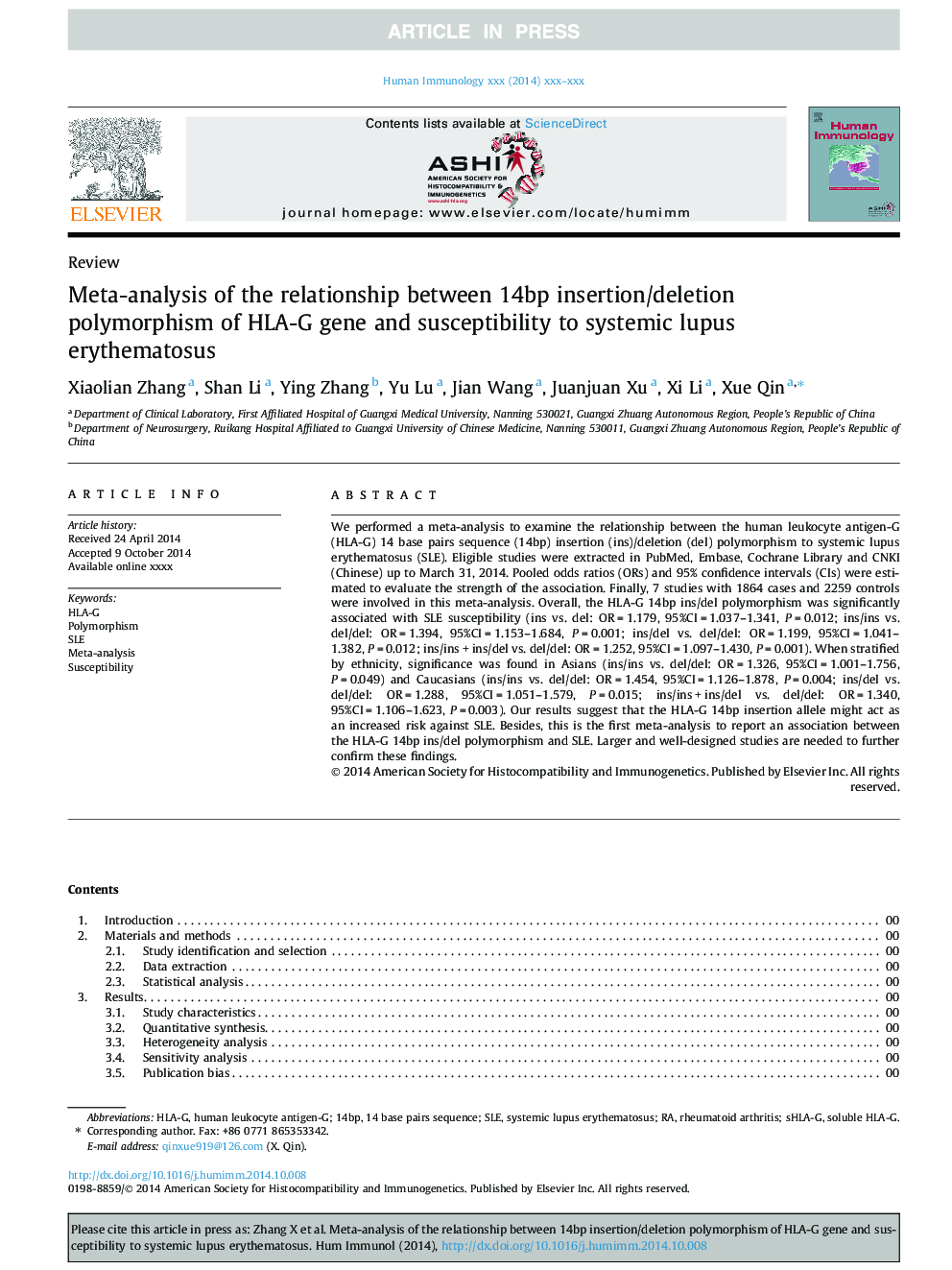| Article ID | Journal | Published Year | Pages | File Type |
|---|---|---|---|---|
| 6116699 | Human Immunology | 2014 | 6 Pages |
Abstract
We performed a meta-analysis to examine the relationship between the human leukocyte antigen-G (HLA-G) 14 base pairs sequence (14bp) insertion (ins)/deletion (del) polymorphism to systemic lupus erythematosus (SLE). Eligible studies were extracted in PubMed, Embase, Cochrane Library and CNKI (Chinese) up to March 31, 2014. Pooled odds ratios (ORs) and 95% confidence intervals (CIs) were estimated to evaluate the strength of the association. Finally, 7 studies with 1864 cases and 2259 controls were involved in this meta-analysis. Overall, the HLA-G 14bp ins/del polymorphism was significantly associated with SLE susceptibility (ins vs. del: OR = 1.179, 95%CI = 1.037-1.341, P = 0.012; ins/ins vs. del/del: OR = 1.394, 95%CI = 1.153-1.684, P = 0.001; ins/del vs. del/del: OR = 1.199, 95%CI = 1.041-1.382, P = 0.012; ins/ins + ins/del vs. del/del: OR = 1.252, 95%CI = 1.097-1.430, P = 0.001). When stratified by ethnicity, significance was found in Asians (ins/ins vs. del/del: OR = 1.326, 95%CI = 1.001-1.756, P = 0.049) and Caucasians (ins/ins vs. del/del: OR = 1.454, 95%CI = 1.126-1.878, P = 0.004; ins/del vs. del/del: OR = 1.288, 95%CI = 1.051-1.579, P = 0.015; ins/ins + ins/del vs. del/del: OR = 1.340, 95%CI = 1.106-1.623, P = 0.003). Our results suggest that the HLA-G 14bp insertion allele might act as an increased risk against SLE. Besides, this is the first meta-analysis to report an association between the HLA-G 14bp ins/del polymorphism and SLE. Larger and well-designed studies are needed to further confirm these findings.
Keywords
Related Topics
Life Sciences
Immunology and Microbiology
Immunology
Authors
Xiaolian Zhang, Shan Li, Ying Zhang, Yu Lu, Jian Wang, Juanjuan Xu, Xi Li, Xue Qin,
